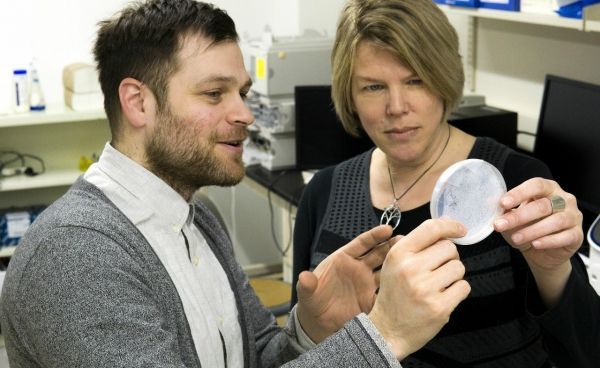Bacteria can become a workforce that helps redefine our energy sector.
Though these single-celled organisms are often dismissed as health hazards, or cheered for their probiotic benefits, their usefulness as highly specialized microscopic labourers is just beginning to be understood—and the work they do could change how we make our energy.
As part of the Future Energy Systems research initiative, University of Alberta biological sciences researcher Lisa Stein and chemical engineering researcher Dominic Sauvageau are genetically engineering non-hazardous bacteria that consume methane, one of the most potent greenhouse gases, and turn it into fuel.
Methane is a major player in climate change.
“When we call it natural gas and burn it for power, methane does reduce emissions compared to coal,” Sauvageau explains. “But if it gets into the atmosphere without being burned, it actually has a stronger global warming effect than CO2.”
Continue reading at University of Alberta.
Image via University of Alberta.


